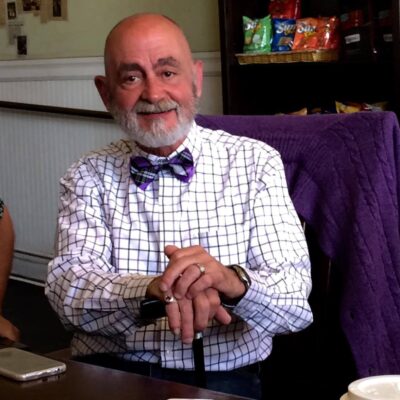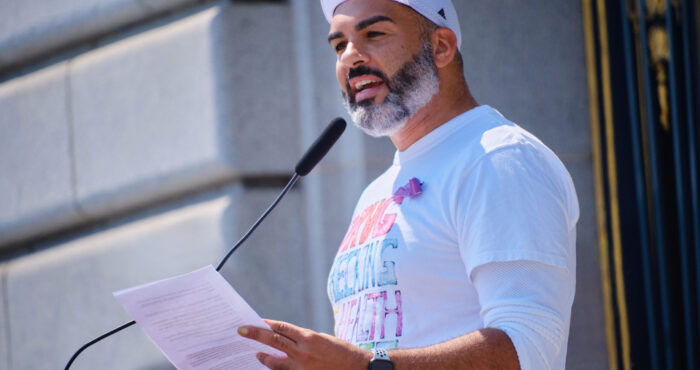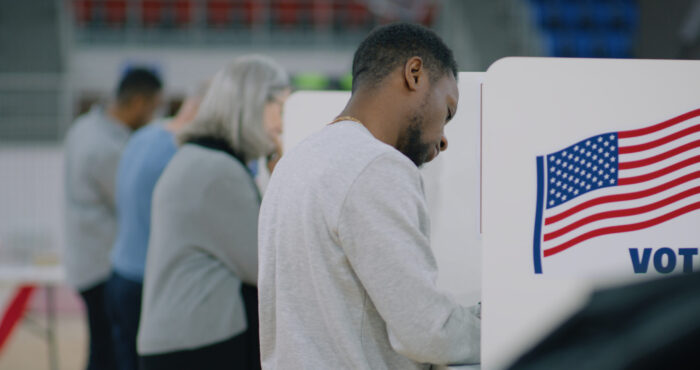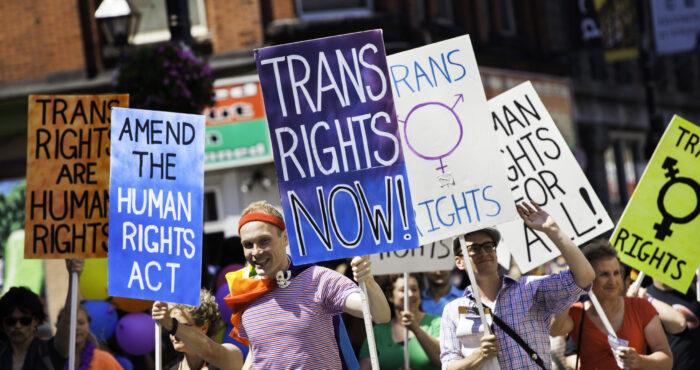The San Francisco Principles 2020: Addressing the unmet needs of long-term HIV survivors in San Francisco

In the days following AIDS2020: Virtual, the biannual conference of the International AIDS Society, five of us San Franciscans gathered on Zoom to discuss our (mostly disappointing) experience of the conference. We were dismayed by the dearth of representation of long-term HIV/AIDS survivors in the presentations at the conference.
All five of us — Paul Aguilar, Harry Breaux, Vince Crisostomo, Michael Rouppet, and I — are long-term HIV/AIDS survivors; we are all also seasoned activists and advocates, at the front lines of the fight for our LGBTQ and HIV communities from the beginning. As we discussed the conference with our friend and ally Sandra Win, MD, MS, AAHIVS, an HIV specialist who has cared for people living with HIV for many years, it became clear to us that a statement regarding the conference alone was insufficient to address the myriad issues faced by us long-term survivors, the first group of people to face the ravages of aging with HIV.
Inspired by The Denver Principles promulgated in 1983, whereby people living with HIV demanded self-empowerment and self-determination in all aspects of HIV/AIDS research and treatment (“Nothing about us without us”), the five of us composed The San Francisco Principles 2020, outlining the challenges we face and our demands for inclusion, resources, and treatment that addresses the specific needs of long-term survivors.
For our purposes with the Principles, we chose to define long-term survivors as those of us who were diagnosed during the fifteen-year period between 1981 and 1996, before the advent of HAART. It is we who bore the brunt of the AIDS pandemic from the very first. It is we who suffered the first diagnoses and the unmitigated fear of catching or spreading the disease; we who buried our friends and lovers and family members after watching them slowly disintegrate; we who were ignored by public health officials, laughed at by politicians, condemned by religious leaders, and shunned by our own communities; we who put our bodies on the line as unpaid guinea pigs for pharmaceutical companies who have made billions in profits off us; we who submitted to the first toxic trials and research programs; we who are still living with PTSD from all the losses and chaos of the early, horrendous days of this pandemic. And finally, we are the ones who set the standard for compassionate caring for our own community.
Today, people over the age of fifty make up more than half of people living with HIV in the U.S.; by 2030, experts predict that number will be over 70 percent. Because our diagnoses came with a death sentence attached, we are living lives we never expected to have.
We have suffered through isolation and loneliness, the expense of medications and health care visits, declining physical health, untreated substance use and mental health problems, and the damage done to us by early HIV medications. We have been virtually forgotten, shoved to the sidelines by AIDS researchers and service providers, and by physicians who have not been trained to treat the unique problems of surviving with HIV.
As the first generation of people to age with HIV, we suffer the debilitating physical and mental effects of aging at an accelerated rate, including loss of cognitive and physical ability. Because of the ravages of HIV on our immune systems, comorbidities can appear in us long-term survivors some twelve years earlier than in our HIV-negative counterparts. Beginning at age 50, long-term survivors’ cognitive and physical abilities diminish much more quickly than in HIV-negative people. We are more prone to cardiac arrest, frailty (osteoporosis), balance issues, diabetes, CMV infection, and innumerable other conditions.
These health concerns are exacerbated by the intersectional problems of poverty, depression, the costs of and access to health care, unstable housing, mental health concerns including substance use, racism, sexism, homophobia, transphobia, and ageism.
We are The AIDS Generation.
And we will be ignored no longer.
And while some AIDS service providers, including San Francisco AIDS Foundation, offer programs and services tailored to meet the needs of long-term survivors, those services and programs are scarce and reach only a small fraction of the long-term survivors in the country. Further, we long-term survivors are routinely relegated to the sidelines at national and international AIDS conferences, both in planning and in presentation. And we are totally absent from state and federal AIDS policies.
Ken Jones, a long-term HIV survivor who is a respected activist and community organizer in San Francisco, expressed the shock to the system from learning that you’re not going to die as you thought. “We are living in this here and now, as a special group of survivors. I spent about eight years waiting around to die with grace and dignity. And, then we have that very, very special moment when it clearly connects with our heart and minds, ‘Oh, shit, I am NOT going to die (within three months). Now what?’ We are here. It appears we may be here for a while; and it is so important that we be able to join hands and join hearts when we find ourselves in a post-COVID world.”
Vince Crisostomo, one of the composers of the Principles and director of aging services at San Francisco AIDS Foundation, summed up further. “I’ve been living with HIV for over 30 years and had an AIDS diagnosis that I’ve not been able to shake for 25 years. Despite the immeasurable loss and multiple traumas, there have been moments of love and gratitude that somehow balance everything out. The San Francisco Principles of 2020 come six months into living through the second pandemic of our lives. Then as now, there are so many things we can’t control, and we have to live with that. There is so much needless suffering due to systems and leadership that do not serve us. Those we can address through lessons learned. My hope is that the Principles do just that. We learned the hard way, and now with COVID-19, I’m not sure how many pandemics I can take.”
With all of that in mind, we offer The San Francisco Principles 2020. It is our hope and our intention that the Principles will start a conversation that affects real, concrete, positive changes in the lives of long-term HIV/AIDS survivors. We invite other long-term HIV/AIDS survivors, our allies, researchers, service organizations, and health care providers to join us by signing on to the Principles. As we say in the Principles, “From San Francisco to the world, we invite you to join us in this fight.”










